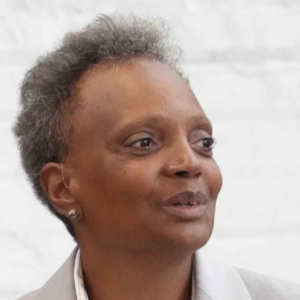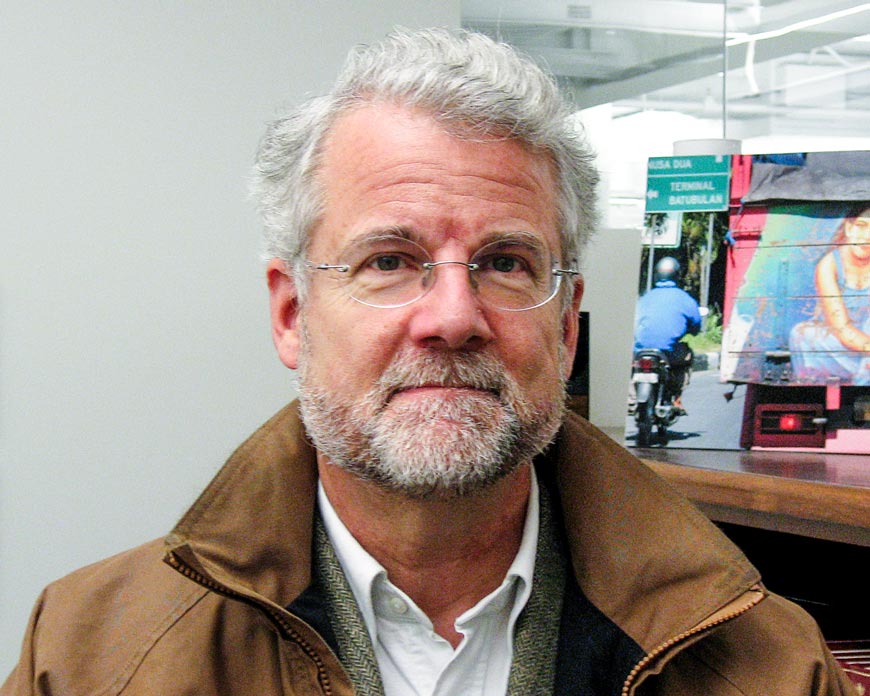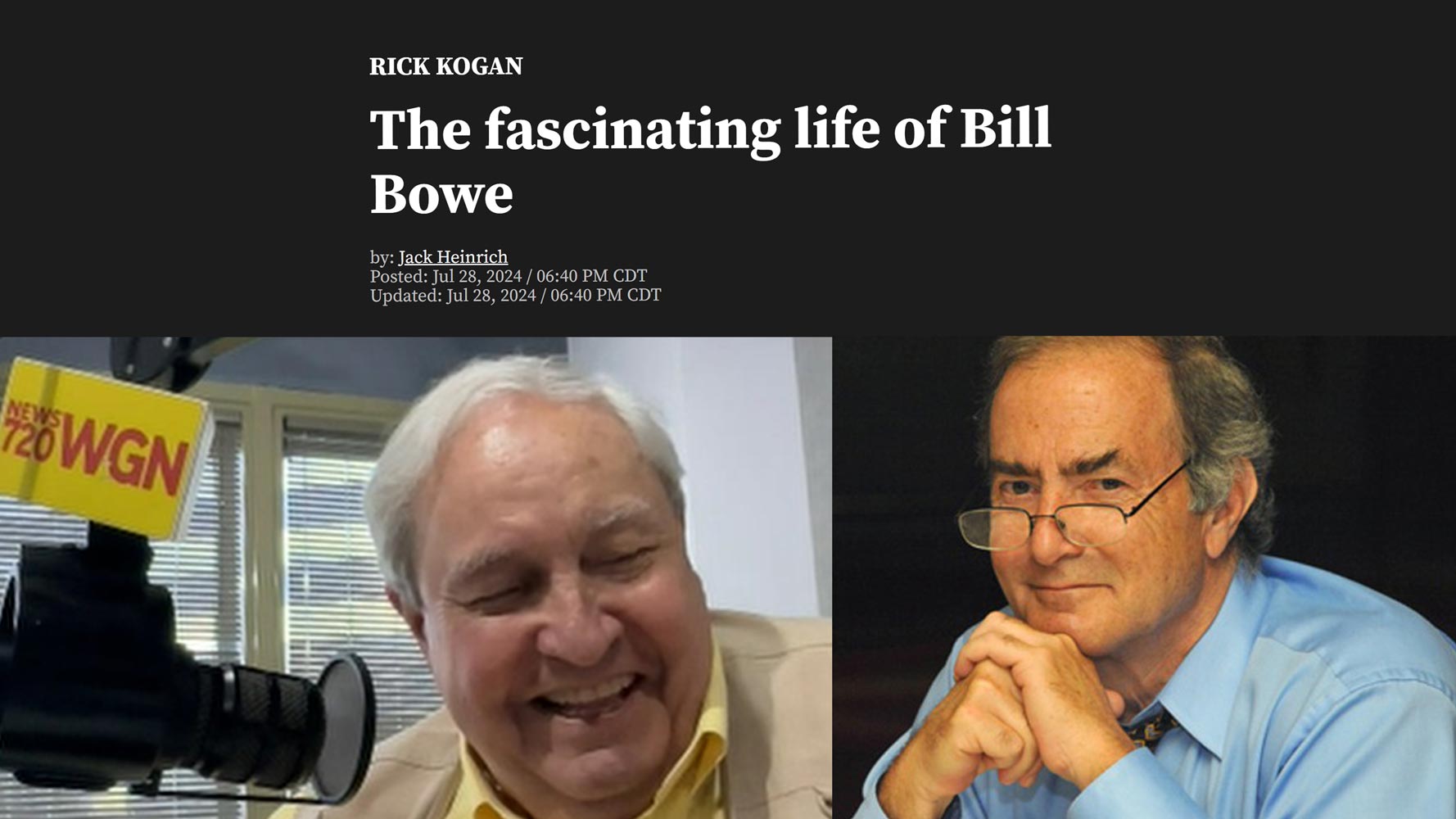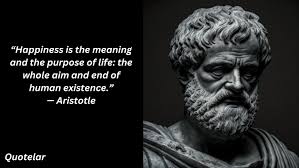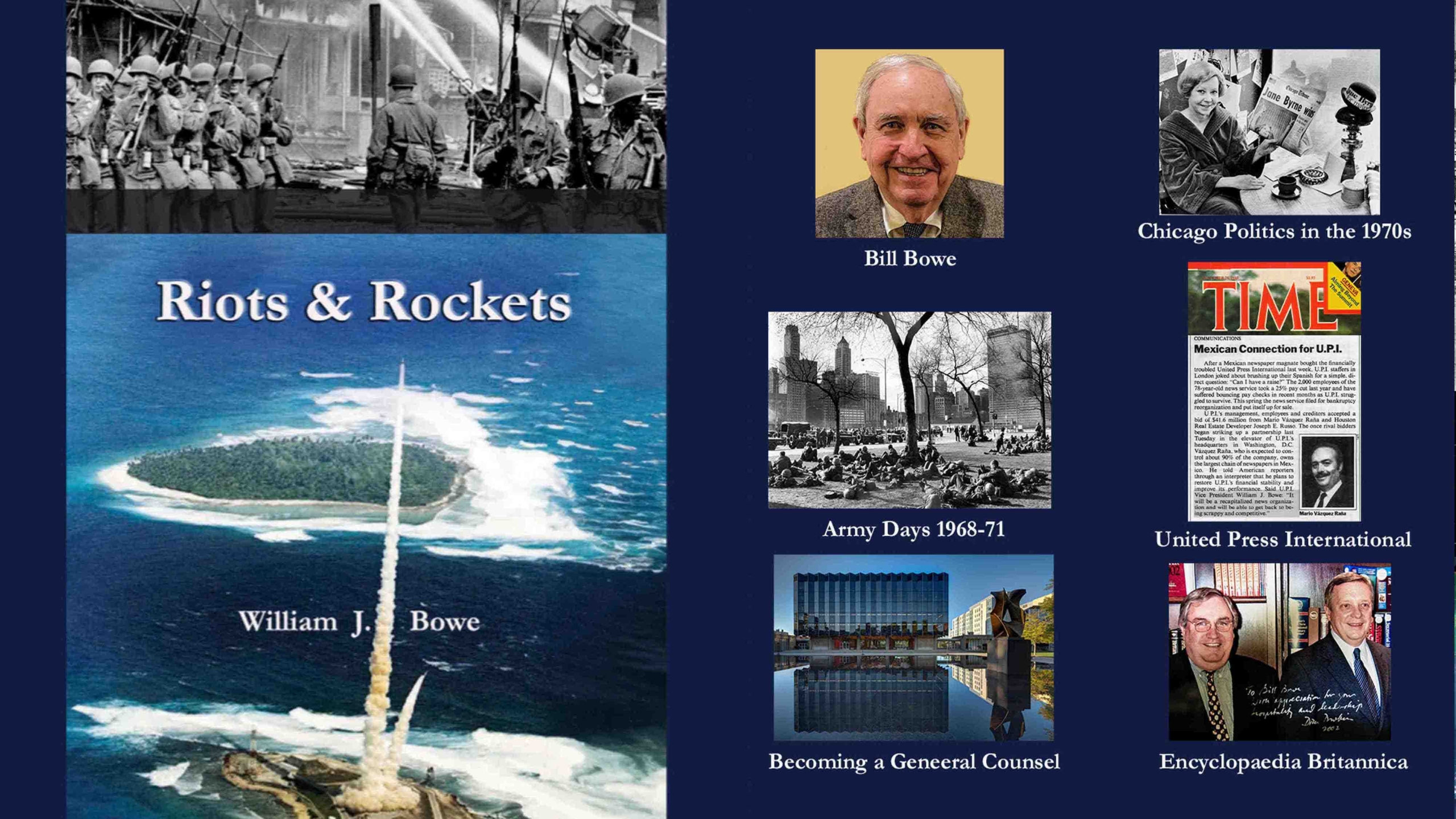On September 15, 2022, Chicago Mayor Lori Lightfoot took time off from her campaign for a second term as Mayor. She had left City Hall in the Loop to travel to Humboldt Park, a neighborhood on the city’s West Side. Lightfoot is a lawyer by training not noted for her scientific interests. But she was joining a very different crowd, one passionate about the future of quantum computing. Like moths to a flame or Icarus to the sun, Lightfoot and the rest of us were strangely drawn to a formerly derelict factory structure. We were all there to celebrate the opening of a small company’s relocated headquarters and laboratory space. The company is named EeroQ Quantum Hardware. After a nationwide search, it had for no apparent reason just moved into part of a previously abandoned hulk in Humboldt Park in a new development called The Terminal. Like Lightfoot, I am also a lawyer not known for my scientific interests. I was there at the invitation of Nicholas Farina, Jr., EeroQ’s Chief Executive Officer. You can read more about the event below and see some of the pictures I took and speeches I recorded here.
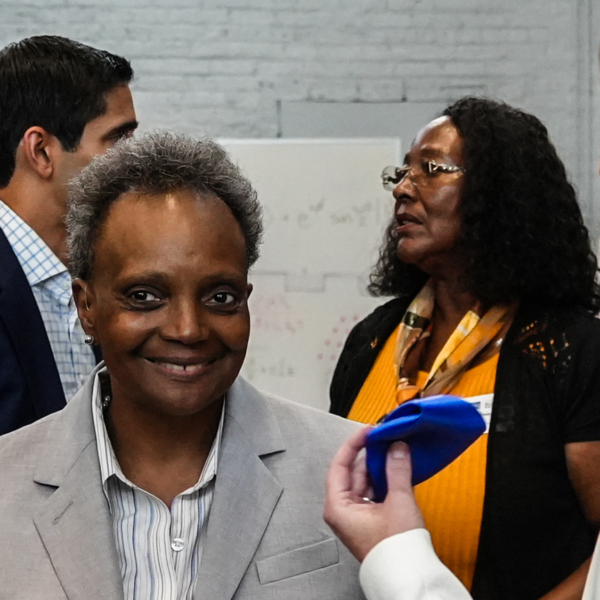
In 1972, I was fresh out of the Army when I met Nicholas Farina, Sr. He was then a reporter on the business page of the Chicago Sun-Times and I was just returning to the practice of law with a Loop firm. My wife Cathy and I became fast friends with Nick and his wife Jane Jedlicka, and often spent holiday gatherings with them and their son Nick, Jr. I later had a chance to work directly with Nick, Sr. when I was Executive Vice President and General Counsel of Encyclopaedia Britannica. Nick, Sr. served as EB’s Director of Communications. Our families remained close over the years and in 2017, Cathy and I flew to New York for Nick, Jr.’s wedding to Hannah Parnes. I have a very distinct memory of Nick taking a moment at his wedding reception to give me a brief update on his work in getting a quantum computing hardware startup going. I wish my friend Nick, Sr. could have lived long enough to see his son Nick get that company well off the ground and moving into a new headquarters and laboratory in Chicago.
In fall 2022, Nick Farina, Jr., Chief Executive Officer of EeroQ Quantum Hardware, was kind enough to invite me to attend the gala opening of EeroQ’s headquarters and laboratory space in Chicago.
Reflecting the importance of the event, Chicago Mayor, Lori Lightfoot, took a break from her reelection campaign to celebrate the moment. With her was Deputy Mayor Samir Mayekar, and the Alderman of Chicago’s 37th Ward, Emma Mitt. Joining the party on the non-government side of things were Nicholas Fassnacht, CEO of World Business Chicago, and Kate Timmerman, Executive Director of the Chicago Quantum Exchange. All of them, including EeroQ’s CEO Nick Farina, gave brief and interesting perspectives on the state of quantum computing today, not just in Chicago, but around the world as well.
The Terminal is a sprawling and long-abandoned factory campus that once turned out the brilliant lighting fixtures that still keep the white terracotta of Chicago’s iconic Wrigley Building visible at night. In its Terminal space, EeroQ will soon be conducting experiments in controlling the movement of electrons floating above a sea of supercooled liquid helium. The electrons will be riding over a space the size of a matchbook, and the goal is to learn to better control the superposition of the electrons’ entanglement with the helium. Crack this nut and you may have a proof of concept critical for the development of quantum computer chips. The hope is to deliver the holy grail: a quantum computer chip able to be mass produced at scale based on existing chip foundry processes.
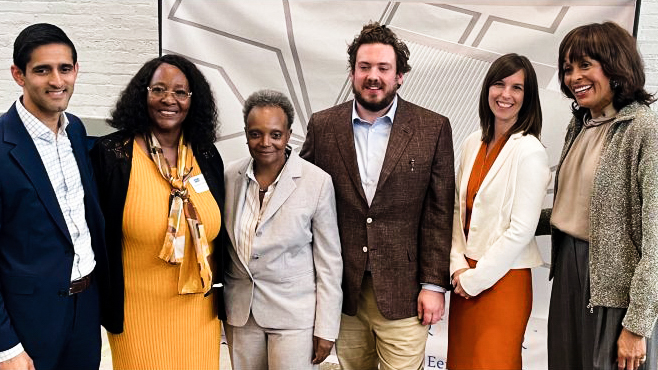
Deputy Mayor Samir Mayekar, 37th Ward Alderman Emma Mitt, Mayor Lori Lightfoot, Nick Farina, CEO, EeroQ Quantum Hardware, Kate Timmerman, Executive Director, Chicago Quantum Exchange, and Faye Wattleton, and Executive Vice President, EeroQ Quantum Hardware
The event I attended gave me a glimpse of the current coalition of academic, government and commercial interests working to grow the now infant quantum computing industry into the behemoth some of the smart money believes it will be some day. I for one am pulling for this dream of quantum computing to become a reality.
Of course, history teaches us that any major advance in technology usually brings with it a host of negatives that some people always believe outweighs its benefits. If true here as well, my guess is we’ll someday figure out how to deal with the negatives of quantum computing. However, we only need to worry about that if we can ever get quantum computing invented in the first place. Personally, I’m optimistic we’ll manage to both invent it and mitigate any downsides. I say this because I always rely on the quotable, if not insightful, words of the late Chicago Mayor Richard J. Daley who once observed, “The future lies ahead!”



